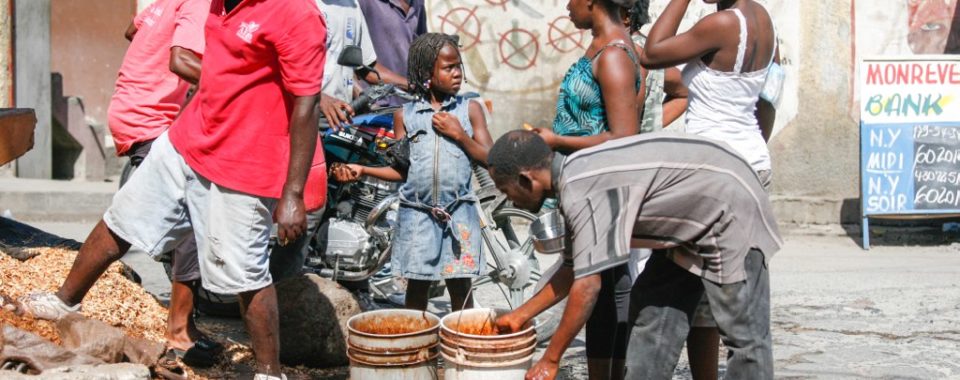BY NATALIE SILVEIRA
With President Jovenel Moïse’s inauguration in 2017, Haiti became the most improved country on the FSI 2018. With his assassination in 2021, it is now among the most worsened. Haiti is the poorest country in the western hemisphere and has been ranked among the fifteen most fragile countries in the world in the past ten years. Haiti has experienced extreme volatility, with the devastation of the 2010 earthquake followed cholera, protests, and political crisis. After over a year of political gridlock in 2016, President Jovenel Moïse was finally inaugurated in 2017, leading to a sharp improvement in the FSI 2018 and raising hopes that Haiti might be on a positive trajectory. However, on July 7, 2021, a group of foreign mercenaries with reported links to organized crime broke into his residence, and shot him dead.
The first half of the year was marked by protests against President Jovenel Moïse and the escape of 400 inmates in what would be the country’s largest and deadliest prison break of the decade.[1] After his assassination in July, there was a succession crisis[2] and an escalation of gang violence, and gun battles over territory, leading to a two-week state of emergency.[3] In addition to the political and security shocks in 2021, in August an earthquake of magnitude 7.2 left 2,248 dead, more than 12,000 injured[4] and more than 30,000 homeless,[5] and destroying 60% of the health facilities in the affected departments.[6]
In April 2022, the White House released a statement designating Haiti as a priority country under the Global Fragility Act.[7] There are several examples of countries that have managed to climb out of the fragility trap over a period of generations. Hait is not yet one of them. Disadvantaged in terms of resources and external intervention, most countries at the top of the Index find themselves unable to get far enough ahead of the vicious cycle of protracted and recurrent crisis to make durable progress in governance systems and development outcomes.
Haiti started at a disadvantage, with enormous debts to France in exchange for independence, which it paid off over 122 years.[8] This hindered investment in the country’s infrastructure and inclusive development, further exacerbated by its susceptibility to frequent tropical storms and earthquakes. With few natural resources, it relies primarily on agriculture which creates vulnerability to global commodity price shocks, such as that which sparked food riots in 2008.[9] Combined with weak governance and insecurity, the sustainability of international development interventions proves highly challenging. Roads and other production hubs are often controlled by armed groups for kidnapping and extortion, which restricts economic activity.[10] Kidnappings for ransom have increased by almost 60% in the first three months of 2022 compared to 2021.[11]
Responding to each humanitarian crisis, while at the same time building durable and resilient systems for livelihoods and governance will prove enormously challenging. It will require resources, innovation, and a sustained commitment over decades to come.
[1] https://www.theguardian.com/world/2021/feb/27/prison-director-and-gang-leader-among-25-killed-in-haitian-jailbreak
[2] https://freedomhouse.org/country/haiti/freedom-world/2022
[3] https://www.theguardian.com/world/2021/jul/08/haiti-reels-murder-president-police-hunt-assassins-jovenel-moise
[4] https://reliefweb.int/report/haiti/2021-haiti-earthquake-situation-report-10-december-16-2021
[5] EM-DAT Source
[6] https://reliefweb.int/report/haiti/unicef-haiti-humanitarian-situation-report-end-year-2021#:~:text=Situation%20Overview%20%26%20Humanitarian%20Needs&text=Grand’Anse%20and%20Nippes%2C%20and,in%20urgent%20need%20of%20assistance.
[7] https://www.whitehouse.gov/briefing-room/statements-releases/2022/04/01/addressing-the-collective-challenges-of-our-time-implementing-the-u-s-strategy-to-prevent-conflict-and-promote-stability/
[8] https://www.npr.org/sections/money/2021/10/05/1042518732/-the-greatest-heist-in-history-how-haiti-was-forced-to-pay-reparations-for-freed
[9] https://www.theguardian.com/world/2008/apr/09/11
[10] https://www.usip.org/publications/2022/04/can-new-us-plan-finally-give-haiti-long-term-framework-it-needs
[11] https://cardh.org/archives/3678
Image licensed under Creative Commons Attribution-Share Alike 4.0 International license.
